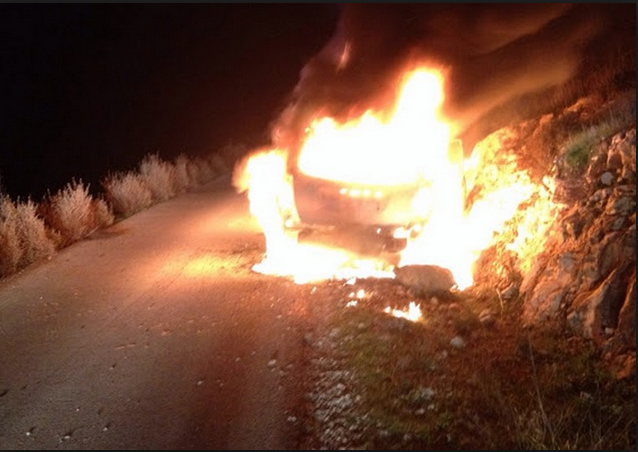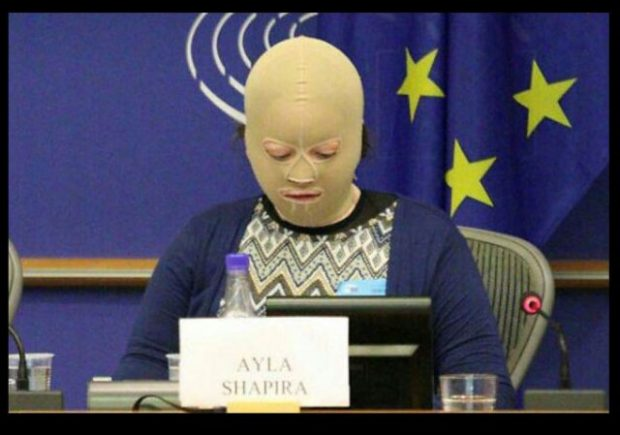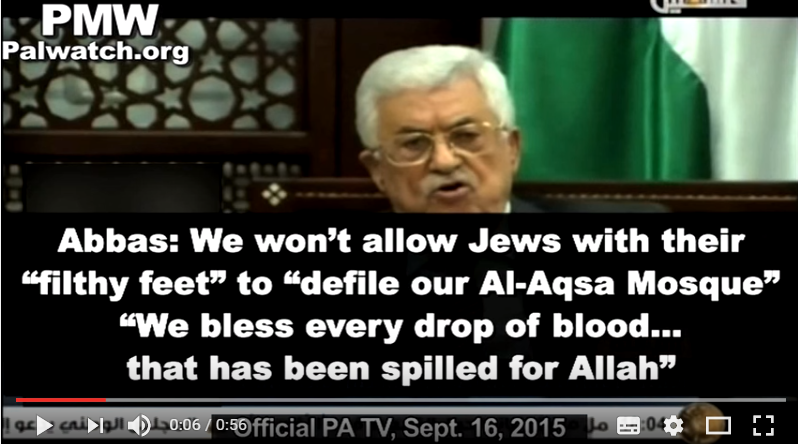Back in December 2014 we noted the absence of any BBC coverage of a serious terror attack.

“…at around 18:30 local time on December 25th – a father and his eleven year-old daughter who were driving home near Ma’ale Shomron in Samaria were attacked with a petrol bomb which set their vehicle on fire.
“The girl suffered third degree burns over the majority of her body and face and was placed in an induced coma.
Professor Zeev Rotstein, director of the Sheba Medical Center, said that she suffered life threatening burns to her torso, head, arms and legs, and that “we will do everything in order to save her life.””
The little girl who was badly burned in that attack, Ayala Shapira, is now thirteen years old and recently, as reported by Ynet, together with her mother she travelled to the European parliament to tell her story.
‘”All of a sudden I saw a ball of fire coming from above. It shattered the window—I don’t remember if it was the windshield or the car window—and landed between dad and me,” she recounts. “Within seconds, my entire field of view was filled with flames. All I could see was yellow and orange. But I didn’t feel any pain. Later, it was explained to me that the adrenaline neutralized the pain. I didn’t feel anything; I was just thinking with cold logic what I had to do to get out of the car.
“I unbuckled my seat belt. It took a while. I tried to open it with my left hand but I couldn’t, because it was already burned. So I used my right hand and that’s how it, too, got burned. After that I tried to open the locked door and it didn’t work.”
“The doctors who treated me said I wasn’t in the car for more than 10 seconds, but it’s amazing to me to think of how many thoughts went through my mind in those 10 seconds. I was asking myself how I was going to get out of the car if its locking mechanism was melting.”
“My dad came out of his side to call for help, but he didn’t turn off the engine. When he saw I couldn’t get out, he came back to the car, turned off the engine, and only then did I manage to get out. By myself.” […]
“Dad and I realized it was too dangerous to stay there, because if there were terrorists on the hill, what was going to stop them from coming down and killing us? We walked for 800 meters, until we got home.” […]
Ayala’s mother, Ruth, continues the story:
“When they got home, I told Avner [Ayala’s father] ‘Your shirt is on fire,’ and he said, ‘Forget that, take care of Ayla.’ I brought her into the house and she looked terrible. She didn’t have any eyebrows or eyelashes, she was bleeding from just about everywhere—from her nose, mouth, ears and eyes. Her shirt was all holes, and under the holes I saw burned flesh. Part of her hair was burned down to the scalp.” […]
“I led her to the shower, with clothes on, and sprayed water on her. Her clothes fell apart and fell off. And she was crying out that she was in pain.” […]
A neighbor who serves as an army medic came into the house, took one look at Ayla, and told Ruth: “We’re not waiting for the ambulance, we’re heading out to meet it.”
During her first week in intensive care, Ayla was sedated. […]
“We didn’t realize the full severity of the situation right away,” Ruth says, “and I’m glad we didn’t. We were told ’30 percent burns, very deep’ and about 12 weeks in the hospital. What I didn’t realize was that only after those 12 weeks can the rehabilitation process begin. […] During her time in the ICU, Ayla underwent four skin graft operations, and then she was transferred to the Department of Pediatrics for two more months, where she underwent another operation. […]
After two months at the Department of Pediatrics, she started a five-month rehabilitation process. […]
Six months ago, Ayla had another operation on her left hand, whose movements were impaired because of the scarring that caused her skin to shrink. “I couldn’t move my thumb,” she says, showing me how her movements have improved. “I had skin shrinking in my right hand as well. Do you think I need surgery?” she asks her mother.
“That’s up to you,” the mother responds.
“I think I’ll give it a pass,” Ayla contemplates aloud. “I’ll settle for the operation on my ears. You see?” she sweeps her hair away. “I suffered from gangrene; parts of the ear fell off.”‘
Ayala still has to wear a pressure mask and will do so for an unknown period of time.
‘”Until the scars stop growing,” Ayla says. “There is no timetable for that, it happens at a different rate for each person. We’ll know that it happened when the scars are no longer pink. At first, my entire face was red. The scars covered large areas. I can see it improving. I have a scar under my lower lip that’s pulling it down. Over my upper lip I had a scar that drained the color from it.”‘
Ayala’s story is one of hundreds of which BBC audiences have no knowledge because non-fatal terror attacks – however devastating for the victims and their families – are for the most part not reported by the BBC and certainly do not receive any follow-up coverage. During 2016, for example, the BBC News website reported all the terror attacks against Israelis that resulted in fatalities, but those attacks were a small proportion of the total number of incidents and audiences were not provided with the crucial context of the scale of attacks as a whole.
Untold stories such as that of Ayala Shapira are no less important than the fatal attacks which do make BBC headlines in helping audiences to understand Israel’s policies, counter-terrorism measures and the concerns of the Israeli people. The fact that such stories are ignored also means that when Israel is obliged to respond to rising terrorism, audiences and BBC journalists alike are unable to put events into their appropriate context and thus arrive at uninformed and inaccurate conclusions.
Any media organisation genuinely committed to fully informing its audiences would make efforts to periodically report that essential context.
Related Articles:
Another terror attack on Israelis ignored by BBC News
BBC News coverage of terrorism in Israel – December 2016 and year summary




